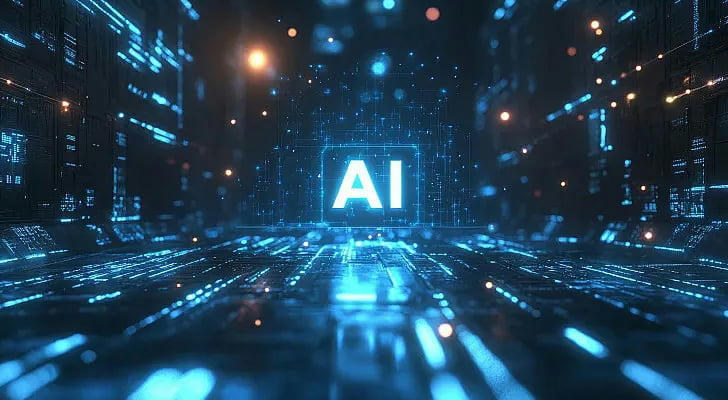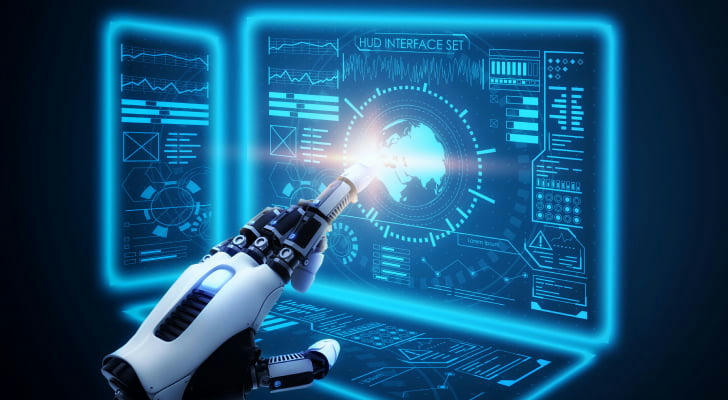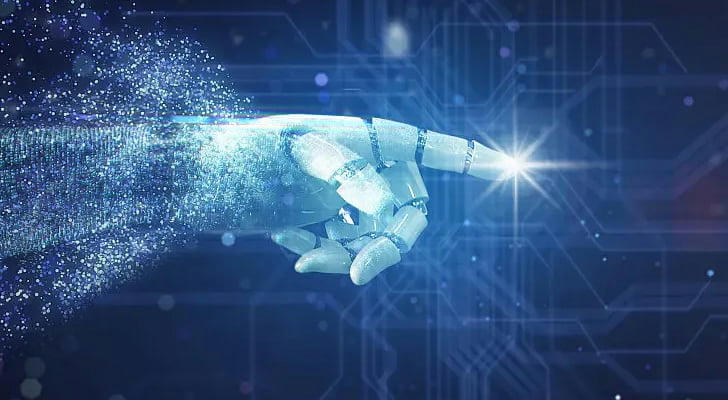The Future of Work: How AI Might Replace Your Job 🏢🧐

Artificial Intelligence (AI) is rapidly reshaping the world around us. From self-driving cars to voice assistants, we’re already seeing how this cutting-edge technology is affecting the way we live. But one area where AI’s impact is particularly significant is in the workplace. The question on many people’s minds is: how might AI replace my job? Let’s dive into this topic and explore what the future of work could look like as AI continues to evolve.
1. What Is AI, and Why Does It Matter for Work? 🤖
A Brief Overview of AI
Artificial Intelligence refers to the simulation of human intelligence in machines that are programmed to think and learn like humans. These machines can analyze data, make decisions, and even predict outcomes based on past experiences. Today, AI is used in many industries for tasks like automating repetitive work, improving customer service, and analyzing large amounts of data faster and more accurately than humans can.
As AI technology becomes more advanced, its potential to replace certain human jobs grows. But before we dive into which jobs might be affected, let’s understand how AI is already being used in the workplace.
2. AI at Work Today: Where Is It Already Making a Difference? 💼
Automating Repetitive Tasks
One of the most significant ways AI is transforming the workplace is by automating repetitive and time-consuming tasks. In industries like manufacturing, AI-powered robots are already performing tasks such as assembling products, packaging, and quality control. These robots can work 24/7 without breaks, increasing efficiency and reducing costs for companies.
Similarly, in offices, AI tools like chatbots and automated scheduling assistants can handle customer service inquiries, schedule meetings, and even manage emails. This allows employees to focus on more creative and strategic tasks while leaving routine work to AI.
AI in Healthcare and Finance
AI is also making waves in industries like healthcare and finance. In healthcare, AI-powered diagnostic tools can analyze medical images and detect diseases like cancer with incredible accuracy. These tools can assist doctors in making faster, more accurate diagnoses.
In finance, AI is used for fraud detection, market predictions, and even to automate trading. AI can analyze vast amounts of data in real-time, identifying patterns that would be impossible for humans to detect. This ability to process information quickly and make decisions based on data is why AI is so valuable in many industries.

3. Which Jobs Are at Risk of Being Replaced by AI? 🔄
Jobs That Involve Repetitive Tasks
One of the areas where AI is likely to replace jobs is in positions that involve a lot of routine, repetitive tasks. For example, jobs in manufacturing, assembly lines, and data entry are highly susceptible to automation. These jobs often require little creativity or decision-making, making them ideal for AI and robots to handle.
Similarly, customer service representatives who answer basic questions or handle simple transactions are also at risk of being replaced by chatbots. AI is already capable of answering customer inquiries via phone, chat, or email, often with a faster response time than a human worker.
Drivers: Will Autonomous Vehicles Take Over? 🚚
Another job category that could be significantly impacted by AI is transportation. With the rise of self-driving cars, trucks, and drones, millions of jobs related to driving could be at risk. For example, long-haul truck drivers, delivery drivers, and even taxi drivers could find themselves out of work as autonomous vehicles become more reliable.
AI-powered self-driving vehicles are already being tested on roads today, and many experts believe that in the near future, autonomous trucks could transport goods across the country without the need for a human driver. While there will likely be many regulatory and safety hurdles to overcome before this becomes widespread, it’s a trend that’s already beginning to take shape.
4. Jobs That Are Less Likely to Be Replaced by AI 🚀
Creative Jobs: A Human Touch
While many jobs are at risk, there are also many roles that AI will struggle to fully replace. Jobs that require creativity, emotional intelligence, and human interaction are less likely to be automated. For example, roles like artists, writers, and designers are driven by human creativity and intuition, which AI cannot replicate.
While AI tools can assist in these fields (such as by generating content ideas or editing photos), they will likely remain complementary to human work rather than replacements. People bring a level of nuance, emotional connection, and context to creative jobs that AI simply cannot replicate.
Healthcare Professionals
Doctors, nurses, and other healthcare workers are also less likely to be replaced by AI, despite advancements in AI-powered diagnostic tools. While AI can help with diagnosis, treatment planning, and even surgery, the emotional intelligence required to care for patients and make complex medical decisions is something AI still lacks.
Moreover, healthcare involves constant interaction with patients, something that requires empathy and human understanding—qualities that AI cannot mimic. Therefore, while AI will assist healthcare professionals, it is unlikely to replace them entirely.
5. How Can You Prepare for a Future with AI at Work? 🛠️
Embrace Lifelong Learning
As AI becomes more integrated into the workplace, it’s important to adapt and stay relevant. One of the best ways to prepare for the future is by embracing lifelong learning. Constantly updating your skills, especially in areas that complement AI (like creativity, problem-solving, and emotional intelligence), will make you more valuable in the workplace.
Taking courses in areas like AI, data analysis, or machine learning could also give you an edge in the job market. If you’re in a job that is at risk of automation, learning how to work alongside AI tools could help you maintain your role or transition into a new one.

Focus on Skills AI Can’t Replace
While AI can perform many tasks, it cannot replace skills that involve human judgment, creativity, and emotional intelligence. Skills like communication, critical thinking, and problem-solving will continue to be in demand. Workers who can collaborate with AI and use it to enhance their own abilities will be more successful in the workforce of the future.
For example, data scientists, engineers, and AI specialists will likely remain in high demand, as these professionals can design, develop, and maintain the AI systems that are revolutionizing the workplace.
6. The Future of Work: A Hybrid Approach 🤝
Humans and AI Working Together
Rather than replacing all human jobs, AI is likely to result in a hybrid approach where humans and machines work together. This collaboration could lead to increased efficiency, innovation, and productivity. AI can handle repetitive tasks, while humans can focus on areas that require creativity, emotional intelligence, and complex decision-making.
In industries like customer service, AI could handle simple inquiries, while human agents could step in for more complex issues that require empathy and nuanced judgment. Similarly, in healthcare, AI could assist doctors by analyzing medical data, but the human touch will still be essential in treating patients and making life-or-death decisions.
7. Conclusion: The Future Is AI-Driven, but Human-Centered 🔮
The future of work is undoubtedly changing, and AI will play a huge role in reshaping industries, job markets, and our daily lives. While many jobs may be at risk of automation, there will always be a need for human creativity, empathy, and critical thinking.
Instead of fearing AI, the key is to adapt and evolve alongside it. By continuously learning, focusing on irreplaceable human skills, and working with AI rather than against it, we can ensure that the future of work remains human-centered.
So, are we ready for AI to take over? It’s already happening, but with the right approach, AI can be the tool that empowers us to do more, be more creative, and tackle challenges we never thought possible. The future is bright—and it’s AI-driven! 🚀
